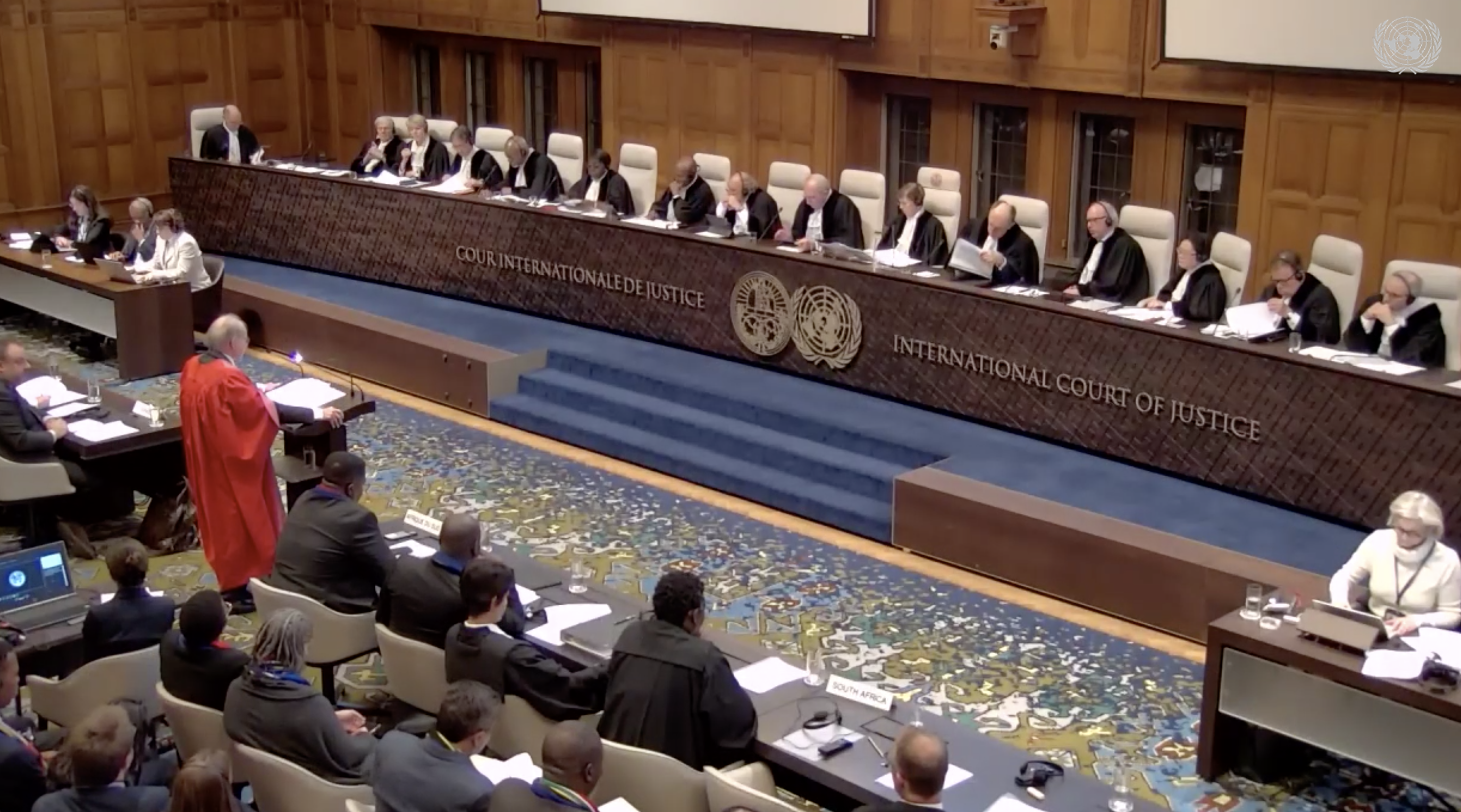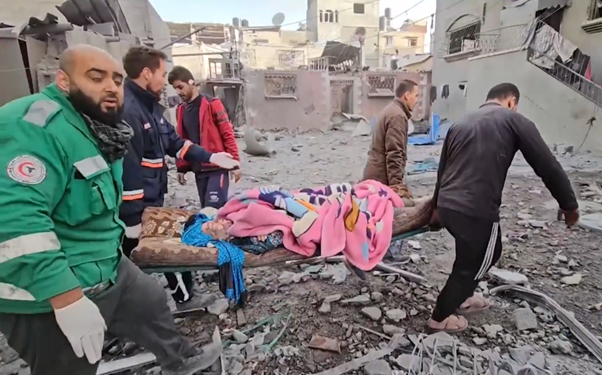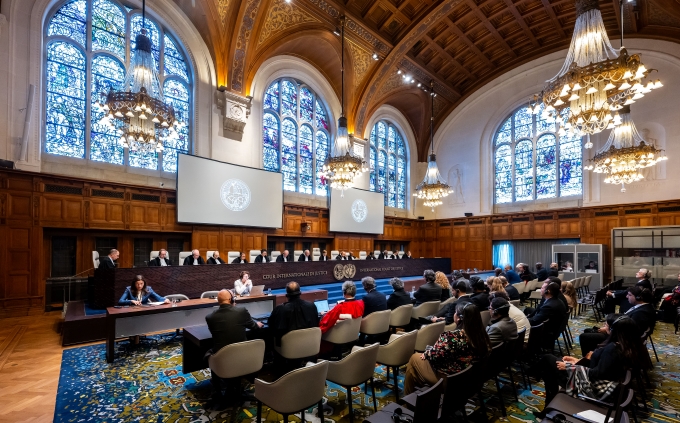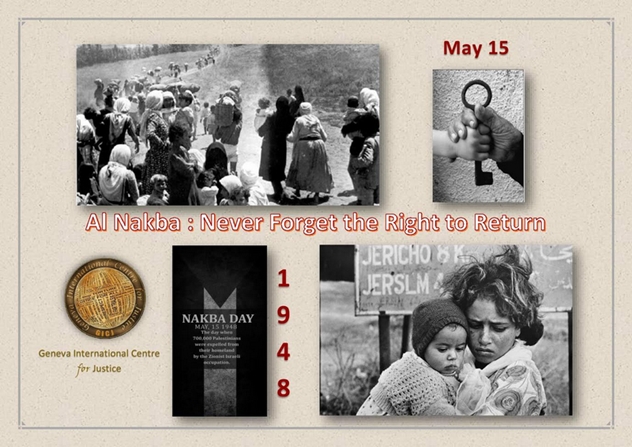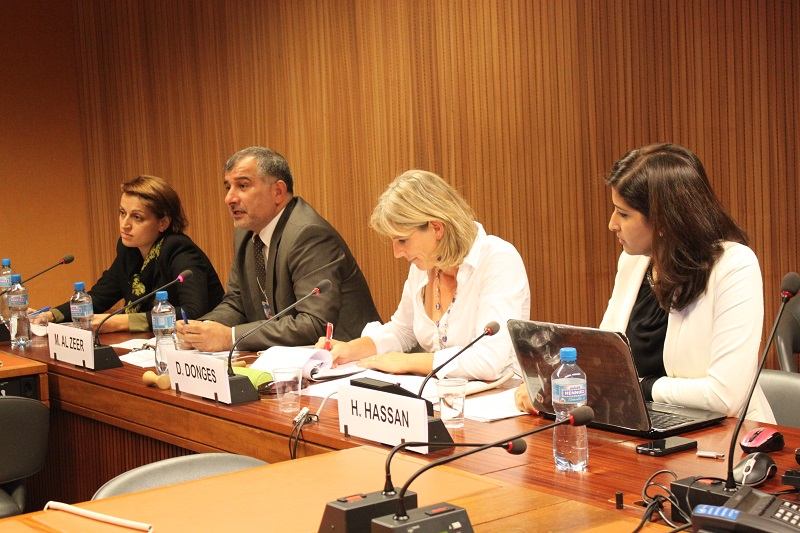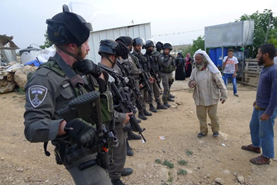Challenging Israel's Legal Discourse: Unmasking Contradictions in the Face of Genocide Accusations
On the second day of the International Court of Justice (ICJ) hearing on January 12, 2024, Israel's legal defence, led by Professor Malcolm Shaw KC, unfolded as a strategic endeavour to dilute, and diminish the stark reality of the violations and warfare against the Palestinian people in Gaza. Shaw vehemently contested South Africa's accusations of genocide, characterising them as a "distorted factual and legal picture." This overview will delve into how Israel's defence team utilised the hearing to mitigate the gravity of the charges, weaving a narrative that challenges the credibility of the allegations and endeavours to justify its actions within the framework of international law. From questioning the genocidal intent, to addressing civilian casualties and asserting the right to self-defence, the defence's arguments will be critically examined in this comprehensive analysis.
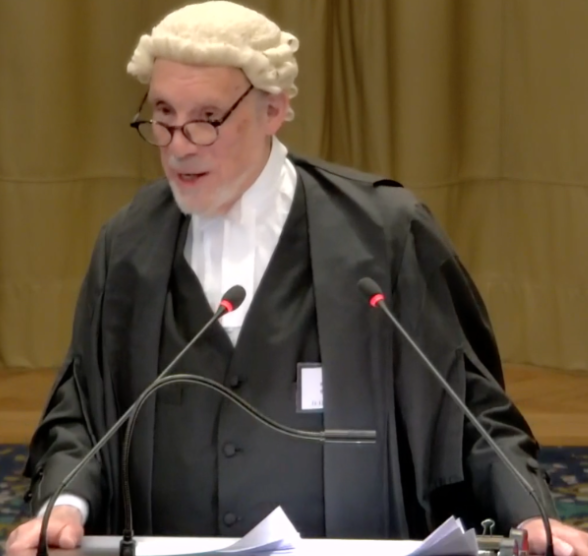 In his presentation, Professor Malcolm Shaw KC, leading Israel's legal defense, vigorously contested South Africa's allegations of genocide against the Palestinian people in Gaza. Shaw alleged that South Africa's claims presented a "distorted factual and legal picture" of the reality. He contended that Hamas initiated the conflict with the attack on 7 October 2023, giving Israel the right to defend itself within the bounds of international humanitarian law. Although the escalation was triggered by the attack on October 7, it must be remembered that the rights of Palestinians have been violated for the last 75 years. Shaw claimed that the challenges Israel faces are largely due to Hamas’ military operations being embedded in civilian areas, exacerbating the toll on Palestinians in Gaza, despite Israel’s proclamation of ‘striving to minimise civilian harm’.
In his presentation, Professor Malcolm Shaw KC, leading Israel's legal defense, vigorously contested South Africa's allegations of genocide against the Palestinian people in Gaza. Shaw alleged that South Africa's claims presented a "distorted factual and legal picture" of the reality. He contended that Hamas initiated the conflict with the attack on 7 October 2023, giving Israel the right to defend itself within the bounds of international humanitarian law. Although the escalation was triggered by the attack on October 7, it must be remembered that the rights of Palestinians have been violated for the last 75 years. Shaw claimed that the challenges Israel faces are largely due to Hamas’ military operations being embedded in civilian areas, exacerbating the toll on Palestinians in Gaza, despite Israel’s proclamation of ‘striving to minimise civilian harm’.
While rejecting calls for Israel to cease operations in Gaza, Shaw emphasised that if Israeli forces have violated conflict rules, the matter should be addressed through what he described, Israel's "robust and independent legal system."
While Israel's defence stressed the need for the Court to establish genocidal intent for jurisdiction, arguing against broader accusations, their assertions appeared to contradict the heartbreaking reality that continued to unfold even during the hearing. Israel’s claims of prioritising civilian protection fall flat in the face of 23,000 Palestinian civilian deaths. Concurrently, as the ICJ was in session, horrific developments in Gaza continued to unfold – a reported Israeli air strike in the al-Masha’la area of Deir El-Balah resulted in 9 Palestinian casualties and 13 injuries, according to the Palestinian Red Crescent Society. Since the start of Israel’s full scale attack on Gaza and its people, Save the Children has reported that at least 10,000 children, equivalent to 1% of Gaza’s total child population, have lost their lives.
From her part, Galit Raguan, acting director of Israel's International Justice Division, contested South Africa's assertion that Israel "deliberately and unlawfully"
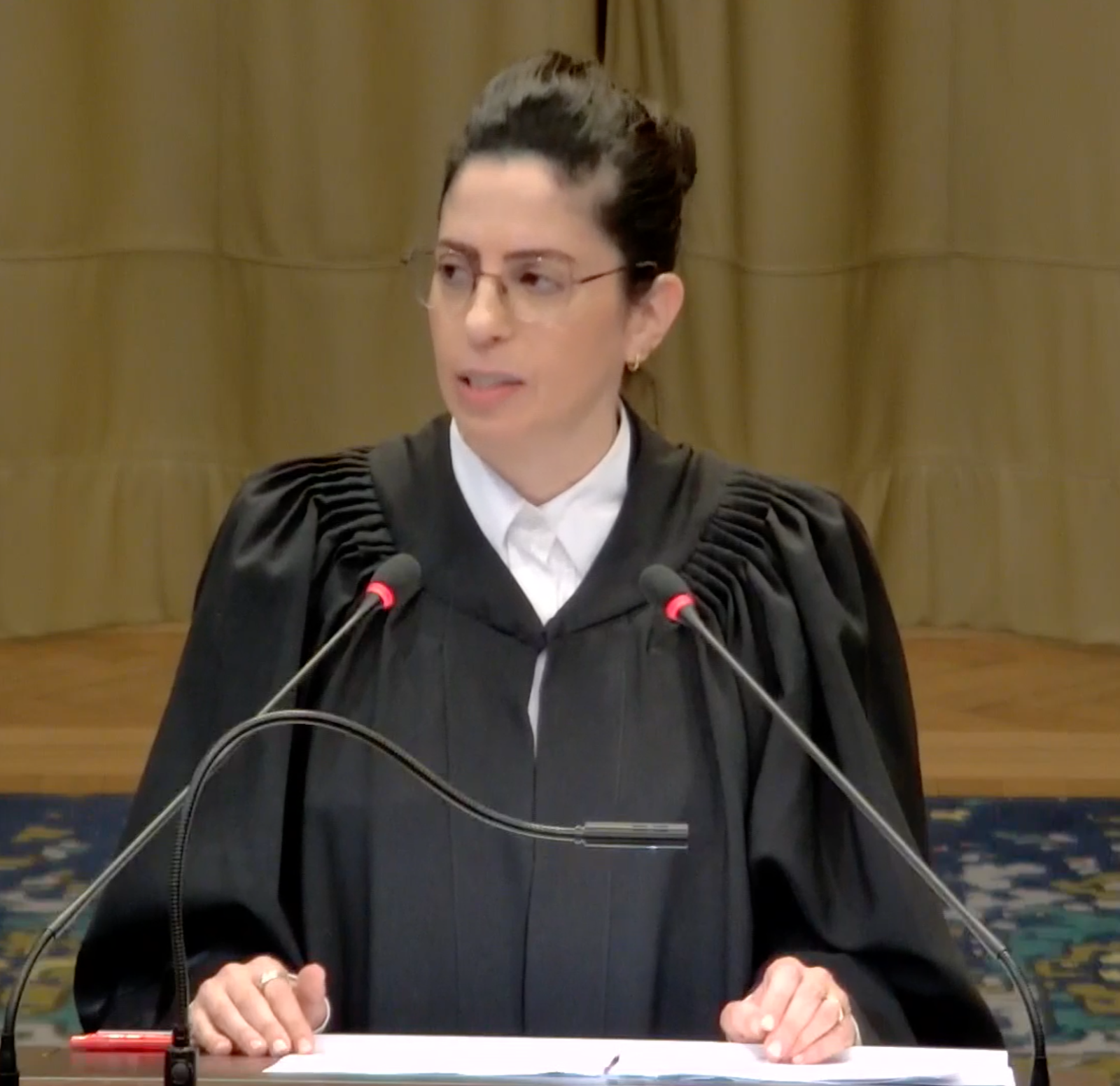 destroyed homes, arguing that harm to "local military objectives" and consequences of Hamas's actions do not constitute evidence of genocide. She contended that Hamas uses hospitals for military purposes but claimed that Israel has not directly bombed these facilities. According to Raguan, damage and harm near hospitals can occur as a "result of hostilities" in their "vicinity." Despite Raguan asserting that the Israeli military issues advanced warnings before launching any attacks, the case of Dina Abu Mehsen tells a different story. Dina, was a 13-year-old girl killed in an Israeli airstrike on Nasser Hospital she did not know was coming. That strike was reported to have occurred with no forewarning, directly contradicting Israel’s claim. This case, among others, underscores discrepancies in the assertion that advanced warnings were uniformly provided, challenging the completeness of the presented defence.
destroyed homes, arguing that harm to "local military objectives" and consequences of Hamas's actions do not constitute evidence of genocide. She contended that Hamas uses hospitals for military purposes but claimed that Israel has not directly bombed these facilities. According to Raguan, damage and harm near hospitals can occur as a "result of hostilities" in their "vicinity." Despite Raguan asserting that the Israeli military issues advanced warnings before launching any attacks, the case of Dina Abu Mehsen tells a different story. Dina, was a 13-year-old girl killed in an Israeli airstrike on Nasser Hospital she did not know was coming. That strike was reported to have occurred with no forewarning, directly contradicting Israel’s claim. This case, among others, underscores discrepancies in the assertion that advanced warnings were uniformly provided, challenging the completeness of the presented defence.
Israel's primary defence centres around its claim to the right of self-defence against Hamas. However, experts in international law, adhering to established legal principles, have highlighted that an occupying state is not legally entitled to defend itself against the territory it occupies. This perspective underscores a legal contradiction in Israel's defence strategy and raises questions regarding the compatibility of their actions with international law.
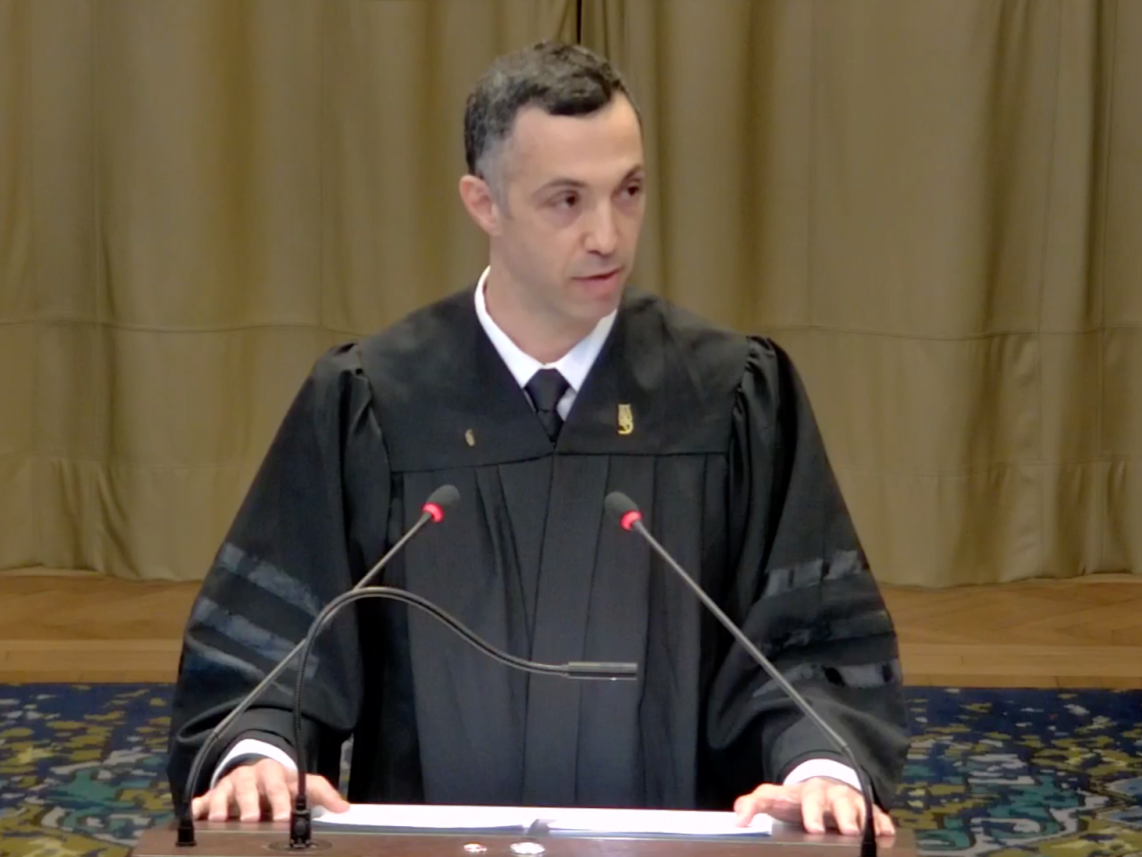 Moreover, Omri Sender, Israel's representative at the hearing, asserts that Israel consistently meets the legal criteria by implementing concrete measures to recognize and safeguard the rights of Palestinian civilians in Gaza. He emphasises that humanitarian aid, including food and water, flows into Gaza without restriction. Prior to 7 October, 2023, the average influx of incoming truck loads, inclusive of fuel, stood at 500. However, as of 12 January 2024, only 145 trucks are permitted. Furthermore, there are restrictions on movement and access, with closures affecting access to the sea and areas proximate to Israel's perimeter fence. Moreover, the conveyance of aid through Kerem Shalom border crossing encountered a suspension period from December 25 to 28, 2023, whilst all other Israeli-controlled crossings remain permanently closed. The sole operational crossing is the Rafah crossing with Egypt, permitting the passage of only approved goods; it is accessible to certain wounded and sick civilians, along with designated aid workers. Additionally, Sender notes successful access for food trucks and the transportation of the sick and injured into Egypt. These assertions are presented in contrast to the initial disruption of water and food flow into Gaza and the destruction of healthcare infrastructure during the initial days following 7 October. In contradiction to Israel’s reassurances of sufficient aid entering Gaza, UN Secretary General Antonio Guterres has emphasised the “completely inadequate” level of aid entering Gaza, calling it “utterly insufficient to sustain basic operations.”
Moreover, Omri Sender, Israel's representative at the hearing, asserts that Israel consistently meets the legal criteria by implementing concrete measures to recognize and safeguard the rights of Palestinian civilians in Gaza. He emphasises that humanitarian aid, including food and water, flows into Gaza without restriction. Prior to 7 October, 2023, the average influx of incoming truck loads, inclusive of fuel, stood at 500. However, as of 12 January 2024, only 145 trucks are permitted. Furthermore, there are restrictions on movement and access, with closures affecting access to the sea and areas proximate to Israel's perimeter fence. Moreover, the conveyance of aid through Kerem Shalom border crossing encountered a suspension period from December 25 to 28, 2023, whilst all other Israeli-controlled crossings remain permanently closed. The sole operational crossing is the Rafah crossing with Egypt, permitting the passage of only approved goods; it is accessible to certain wounded and sick civilians, along with designated aid workers. Additionally, Sender notes successful access for food trucks and the transportation of the sick and injured into Egypt. These assertions are presented in contrast to the initial disruption of water and food flow into Gaza and the destruction of healthcare infrastructure during the initial days following 7 October. In contradiction to Israel’s reassurances of sufficient aid entering Gaza, UN Secretary General Antonio Guterres has emphasised the “completely inadequate” level of aid entering Gaza, calling it “utterly insufficient to sustain basic operations.”
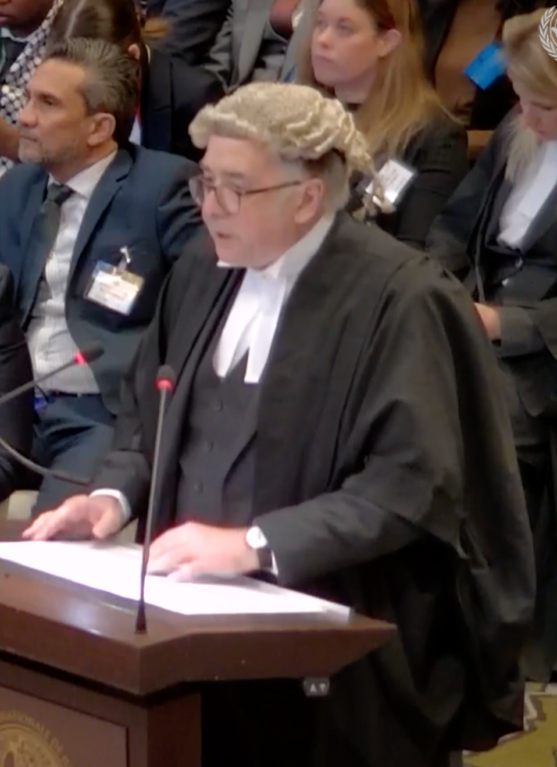 Christopher Staker, an international lawyer, led Israel’s defence expressing astonishment at South Africa's call for an immediate suspension of Israel's military operations in Gaza. Staker questioned the applicability of provisional measures that might require a state to refrain from exercising a plausible right to self-defence. Staker underscores that Israel's military operation is a legitimate act of self-defence, committed to complying with international humanitarian law. He argues against mutual restraint, seeing as, according to Israel, Hamas intends to persist in attacks against Israel and its citizens. Additionally, Staker contended that such measures would impede Israel's ability to address security threats and hinder rescue efforts for captives in Gaza
Christopher Staker, an international lawyer, led Israel’s defence expressing astonishment at South Africa's call for an immediate suspension of Israel's military operations in Gaza. Staker questioned the applicability of provisional measures that might require a state to refrain from exercising a plausible right to self-defence. Staker underscores that Israel's military operation is a legitimate act of self-defence, committed to complying with international humanitarian law. He argues against mutual restraint, seeing as, according to Israel, Hamas intends to persist in attacks against Israel and its citizens. Additionally, Staker contended that such measures would impede Israel's ability to address security threats and hinder rescue efforts for captives in Gaza
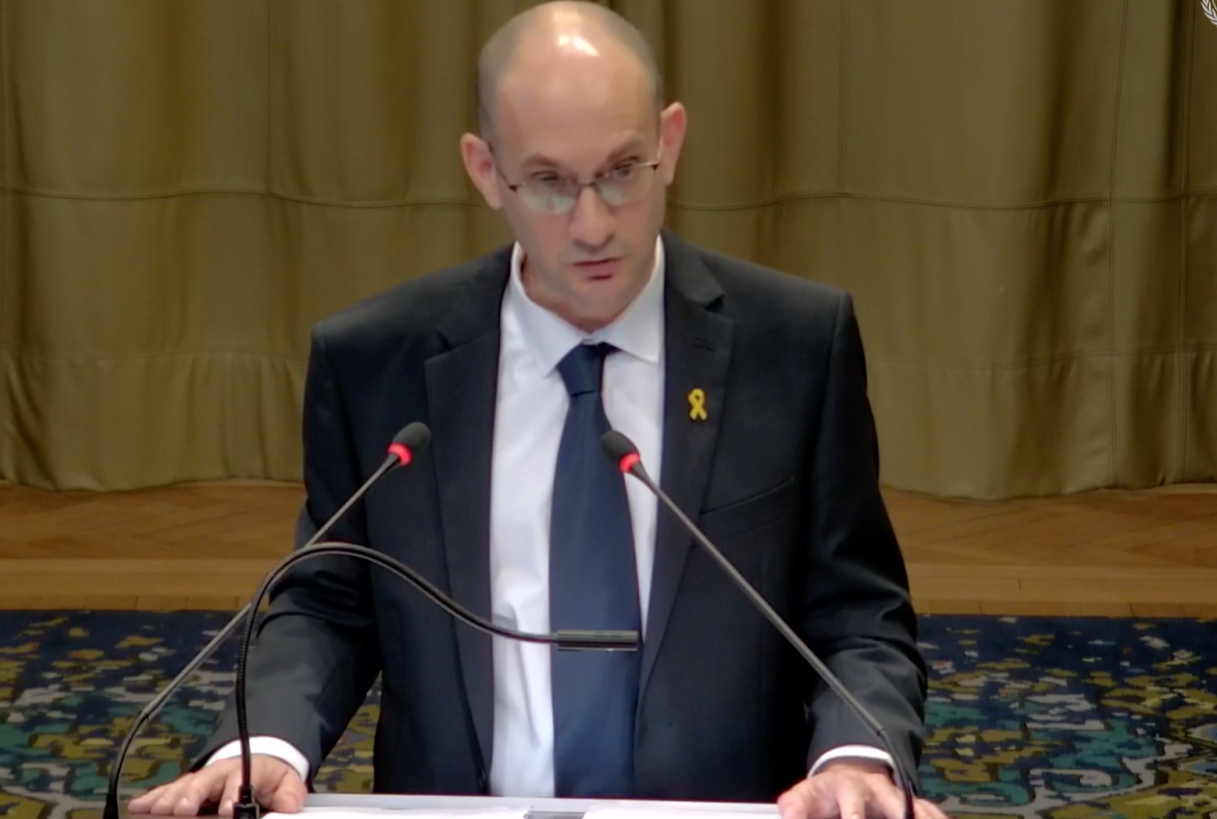
Israel's Deputy Attorney General, Gilad Noam, argues that South Africa has not successfully made the case for provisional measures. He points out that the applicant failed to demonstrate any dispute between Israel and South Africa, accusing them of attempting to mislead the court. Additionally, Noam contends that the applicant did not meet the conditions for a plausible right to be protected in the current circumstances. He asserts that the events in question, framed within a war initiated by Hamas and governed by international humanitarian law, do not fall under the purview of the Genocide Convention. Noam concludes by stating that the standards for applying provisional measures, namely "irreparable harm and urgency," are not met, citing Israel's steps to address the humanitarian crisis in Gaza. He emphasised that Israel has fulfilled all legal obligations and deems each of the nine provisional measures sought by South Africa as "unwarranted and prejudicial." It is now in the Court’s hands to decide if Israel’s claims outweigh the severity of the humanitarian crisis in Gaza.
Read more from GICJ:
|
|
|
|
|
|
GICJ side-event: diaspora and their right of return, where to? |
|
Palestine, Israel, ICJ, South Africa, Genocide, Occupation, Geneva International Centre for Justice




